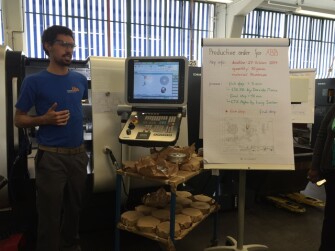Even the best education systems have their challenges, but they recognize them and are constantly pursuing new solutions. Today I continue my interview with Ursula Renold, head of education systems research in the KOF Swiss Economic Institute. This is presented in partnership with NASDCTEc.
Many consider the Swiss vocation education and training (VET) system one of the best in the world. But every system has its challenges—what are yours and what are some solutions you are looking to implement?
There are specific areas we have identified as challenges and solutions we are pursuing:
Demographic changes: We have an aging workforce and not enough students to replace them in the VET system. Therefore, we are looking at ways to “re-tool” all employees and raise their productivity with further education.
Potential perception issues: We continue to fear that too many parents will insist their children pursue a university pathway instead of the VET pathway, thereby weakening the economy (something experienced by Denmark, which also had a strong apprenticeship program). An international dialogue and exchange of knowledge on the importance of VET competences to close the 21st century middle skills gap is one of the solutions to this problem. Another route is to connect the worldwide community of scholars and experts, which could provide the evidence and the rationale for well-balanced educational diversity.
- Globalization: The increase of international companies working in Switzerland threatens the VET system. These companies do not have a tradition of VET and are therefore less supportive of the system. It is very important to launch an information campaign for multi-national companies and newcomers to Switzerland who are not familiar with the VET system so that they can understand the comparatively outstanding outcomes of our VET system.

A Swiss manufacturing apprentice demonstrates his work.
What do you think the future of VET/CTE in your country looks like?
I am confident our VET system will evolve in line with the changes in the world of work because of the role industry associations play in defining curriculum content and educational standards. These partners will continue to adapt those frameworks to meet the future needs of their industries every three to five years. Due to the fact that technology-forward companies often advance such revisions, small to medium size companies will continue to profit from spillover effects because they too will have to apply the best available technology if they would like to offer an apprenticeship. We also anticipate apprenticeships forming in new and additional industries if there is a need due to the high flexibility of our system.
What advice do you have for other systems attempting to reform their VET/CTE systems? What are some of the policies in Switzerland that could assist others in overcoming the challenges they face in VET/CTE?
That’s maybe the most difficult question. There is no simple solution for other countries. One has to take into consideration the context and ecosystem of a country. But there is one crucial aspect, which should be carefully analyzed: What is the link between education and employment systems—e.g. governance, curriculum design, and curriculum application? In my experience, most countries that are trying to reform their CTE/VET system are struggling with this issue and do not know how to bridge education and employment systems in an effective way. Therefore, our Swiss Economic Institute (ETHZ) is launching a policy development program for education policy leaders, which includes a summer policy seminar to help participants to tackle these problems and to assist them in building capacity in their own region. For more information, please contact: ursula.renold@kof.ethz.ch
To read more about the Swiss system, see “Gold Standard: The Swiss Vocational Education and Training System.”
Follow NASDCTEc, Heather, and Asia Society on Twitter.
Photo courtesy of Heather Singmaster.